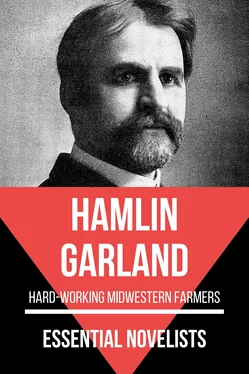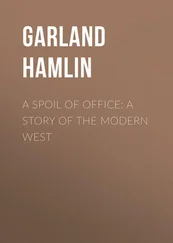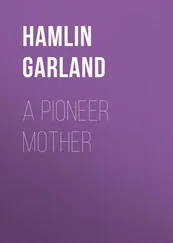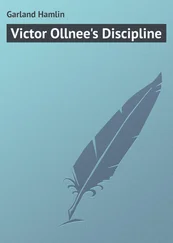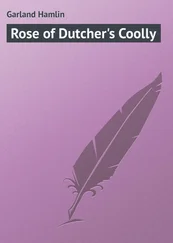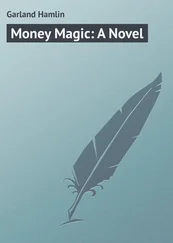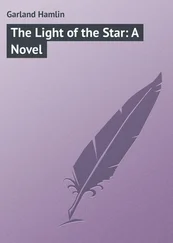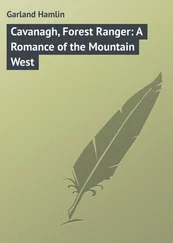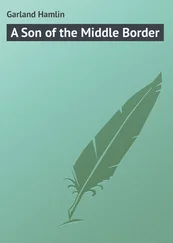1 ...7 8 9 11 12 13 ...43 Sometime in the spring of 1868, a merchant from LaCrosse, a plump man who brought us candy and was very cordial and condescending, began negotiations for our farm, and in the discussion of plans which followed, my conception of the universe expanded. I began to understand that "Minnesota" was not a bluff but a wide land of romance, a prairie, peopled with red men, which lay far beyond the big river. And then, one day, I heard my father read to my mother a paragraph from the county paper which ran like this, "It is reported that Richard Garland has sold his farm in Green's Coulee to our popular grocer, Mr. Speer. Mr. Speer intends to make of it a model dairy farm."
This intention seemed somehow to reflect a ray of glory upon us, though I fear it did not solace my mother, as she contemplated the loss of home and kindred. She was not by nature an emigrant,—few women are. She was content with the pleasant slopes, the kindly neighbors of Green's Coulee. Furthermore, most of her brothers and sisters still lived just across the ridge in the valley of the Neshonoc, and the thought of leaving them for a wild and unknown region was not pleasant.
To my father, on the contrary, change was alluring. Iowa was now the place of the rainbow, and the pot of gold. He was eager to push on toward it, confident of the outcome. His spirit was reflected in one of the songs which we children particularly enjoyed hearing our mother sing, a ballad which consisted of a dialogue between a husband and wife on this very subject of emigration. The words as well as its wailing melody still stir me deeply, for they lay hold of my sub-conscious memory—embodying admirably the debate which went on in our home as well as in the homes of other farmers in the valley,—only, alas! our mothers did not prevail.
It begins with a statement of unrest on the part of the husband who confesses that he is about to give up his plow and his cart—
Away to Colorado a journey I'll go,For to double my fortune as other men do, While here I must labor each day in the fieldAnd the winter consumes all the summer doth yield .
To this the wife replies:
Dear husband, I've noticed with a sorrowful heartThat you long have neglected your plow and your cart,Your horses, sheep, cattle at random do run,And your new Sunday jacket goes every day on. Oh, stay on your farm and you'll suffer no loss,For the stone that keeps rolling will gather no moss.
But the husband insists:
Oh, wife, let us go; Oh, don't let us wait;I long to be there, and I long to be great,While you some fair lady and who knows but IMay be some rich governor long 'fore I die, Whilst here I must labor each day in the field,And the winter consumes all the summer doth yield .
But wife shrewdly retorts:
Dear husband, remember those lands are so dearThey will cost you the labor of many a year.Your horses, sheep, cattle will all be to buy,You will hardly get settled before you must die.Oh, stay on the farm,—etc.
The husband then argues that as in that country the lands are all cleared to the plow, and horses and cattle not very dear, they would soon be rich. Indeed, "we will feast on fat venison one-half of the year." Thereupon the wife brings in her final argument:
Oh, husband, remember those lands of delightAre surrounded by Indians who murder by night.Your house will be plundered and burnt to the groundWhile your wife and your children lie mangled around.
This fetches the husband up with a round turn:
Oh, wife, you've convinced me, I'll argue no more,I never once thought of your dying before.I love my dear children although they are smallAnd you, my dear wife, I love greatest of all.
Refrain (both together)
We'll stay on the farm and we'll suffer no lossFor the stone that keeps rolling will gather no moss.
This song was not an especial favorite of my father. Its minor strains and its expressions of womanly doubts and fears were antipathetic to his sanguine, buoyant, self-confident nature. He was inclined to ridicule the conclusions of its last verse and to say that the man was a molly-coddle—or whatever the word of contempt was in those days. As an antidote he usually called for "O'er the hills in legions, boys," which exactly expressed his love of exploration and adventure.
This ballad which dates back to the conquest of the Allegheny mountains opens with a fine uplifting note,
Cheer up, brothers, as we goO'er the mountains, westward ho,Where herds of deer and buffaloFurnish the fare.
and the refrain is at once a bugle call and a vision:
Then o'er the hills in legions, boys,Fair freedom's starPoints to the sunset regions, boys,Ha, ha, ha-ha!
and when my mother's clear voice rose on the notes of that exultant chorus, our hearts responded with a surge of emotion akin to that which sent the followers of Daniel Boone across the Blue Ridge, and lined the trails of Kentucky and Ohio with the canvas-covered wagons of the pioneers.
A little farther on in the song came these words,
When we've wood and prairie land,Won by our toil,We'll reign like kings in fairy land,Lords of the soil!
which always produced in my mind the picture of a noble farm-house in a park-like valley, just as the line, "Well have our rifles ready, boys," expressed the boldness and self-reliance of an armed horseman.
The significance of this song in the lives of the McClintocks and the Garlands cannot be measured. It was the marching song of my Grandfather's generation and undoubtedly profoundly influenced my father and my uncles in all that they did. It suggested shining mountains, and grassy vales, swarming with bear and elk. It called to green savannahs and endless flowery glades. It voiced as no other song did, the pioneer impulse throbbing deep in my father's blood. That its words will not bear close inspection today takes little from its power. Unquestionably it was a directing force in the lives of at least three generations of my pioneering race. Its strains will be found running through this book from first to last, for its pictures continued to allure my father on and on toward "the sunset regions," and its splendid faith carried him through many a dark vale of discontent.
Our home was a place of song, notwithstanding the severe toil which was demanded of every hand, for often of an evening, especially in winter time, father took his seat beside the fire, invited us to his knees, and called on mother to sing. These moods were very sweet to us and we usually insisted upon his singing for us. True, he hardly knew one tune from another, but he had a hearty resounding chant which delighted us, and one of the ballads which we especially like to hear him repeat was called Down the Ohio . Only one verse survives in my memory:
The river is up, the channel is deep,The winds blow high and strong.The flash of the oars, the stroke we keep,As we row the old boat along,Down the O-h-i-o.
Mother, on the contrary, was gifted with a voice of great range and sweetness, and from her we always demanded Nettie Wildwood , Lily Dale , Lorena or some of Root's stirring war songs. We loved her noble, musical tone, and yet we always enjoyed our father's tuneless roar. There was something dramatic and moving in each of his ballads. He made the words mean so much.
It is a curious fact that nearly all of the ballads which the McClintocks and other of these powerful young sons of the border loved to sing were sad. Nellie Wildwood , Minnie Minturn , Belle Mahone , Lily Dale were all concerned with dead or dying maidens or with mocking birds still singing o'er their graves. Weeping willows and funeral urns ornamented the cover of each mournful ballad. Not one smiling face peered forth from the pages of The Home Diadem .
Читать дальше
